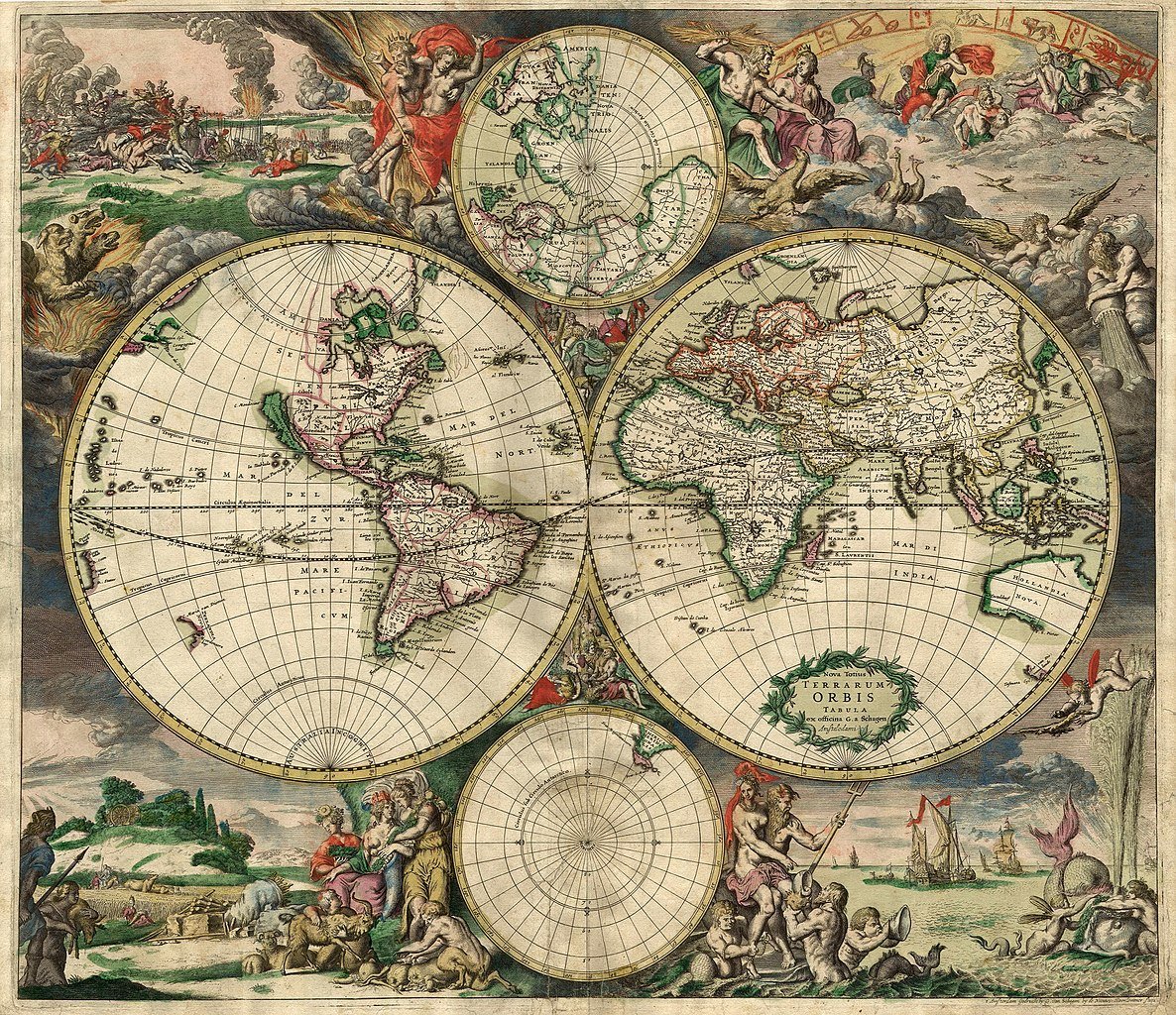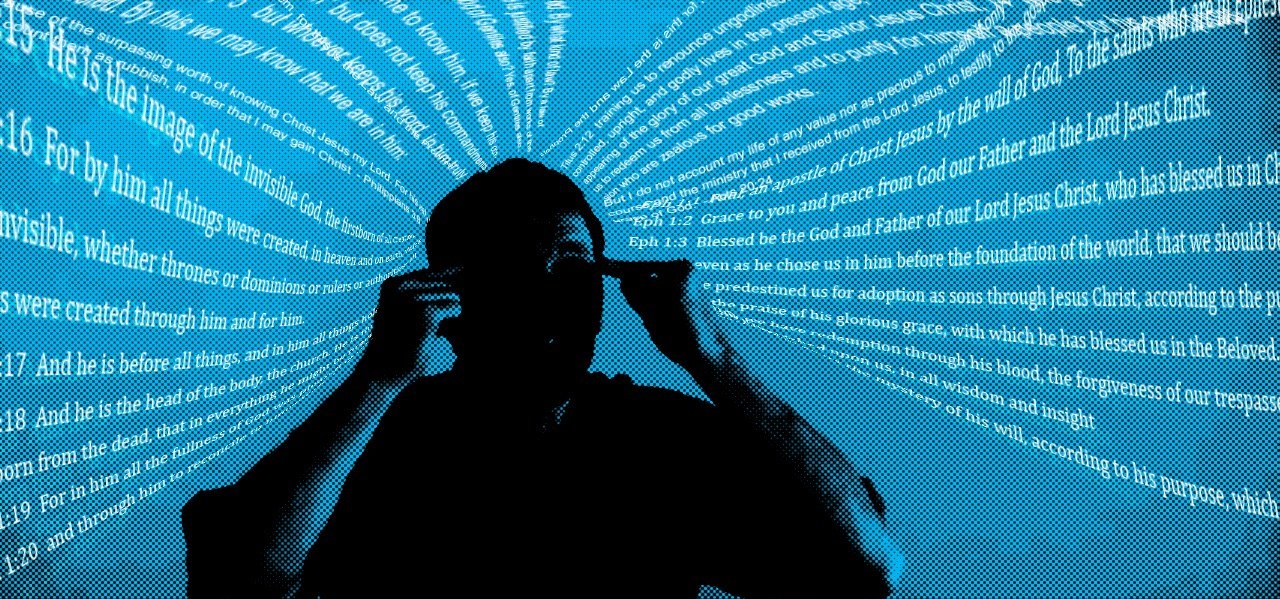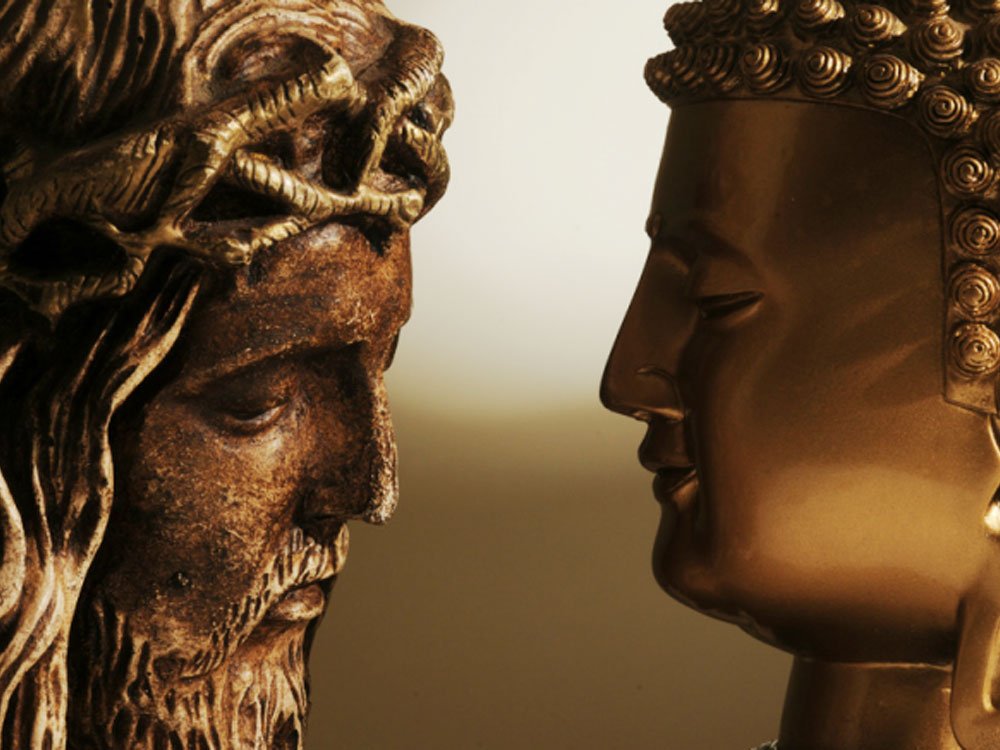I wonder if Silas/Silvanus could be Paul's nickname for his own alter ego, the "Saul" of his prior persecuting life, his shadow side, his human side, his "sinful" side, prior to perhaps taking a "new name" of Paul after his conversion experience.
Tag: nonduality
A Psychological and Mystical Interpretation of the Myth of Adam & Eve and the Garden of Eden
I think the story of Adam & Eve is a mythological allegory describing humanity's "fall" of consciousness into the dualities of self-awareness, subject/object relationships, and the opposites of existence. This is symbolized in the partaking of the "tree" of knowledge of good and evil, i.e. dualities.
A Map of Reality
Humans want to know what's real, what's reality, what's true. We have explored the outside world and our inner worlds for millennia, and we seem to still not be sure what is absolutely real. I think the issue might be that what is really real is not something that can be seen or communicated through language at our dualistic level of perception. We have to transcend duality experientially and consciously in order to know the "really real," sometimes called the Nondual, the One, the Real, the Absolute, or God. Perhaps only at that level of consciousness may we come to truly know what is ultimately Real and True.
My Thoughts on the New Age, and How It Differs from Mysticism
I am not fond of much of the New Age movement. Sometimes my thoughts about mysticism may seem like the New Age, but I think that is because the New Age has adopted a lot of mystical language and concepts, not that classical mysticism inherently belongs to the New Age. They are two different fields, which have some overlap. The New Age developed just in the 1970s. Mysticism has been around for millennia, indeed, for all of human history, in every part of the world.
The Mysticism of Falling into a Black Hole
The unitive mystical experience can be compared to falling into a black hole. When compared this way, it doesn't sound like a nice experience. Likewise, for many mystics throughout history, their divine experiences weren't always a merry venture, sometimes encountering hellish realms along the way (see, for example, St. Teresa of Ávila, or St. John of the Cross's Dark Night of the Soul).
Is the Universe Made of Consciousness?
It sounds like a pretty woowoo thing to say, really smacking of the "New Age." But this seems to be the skeleton in the closet that even physicists don't want to admit. But some have.
Our Ideas of God Are Not God
The ideas we have about God are not God. Any idea, thought, or concept never was and never will be God. They may be helpful symbols that point to God, metaphors, analogies, allegories, images, but they are not God as God is. They will inevitably conflict with one another and be fallible, as every symbol eventually fails at actually being the thing it is supposed to represent. The symbol is never the thing-in-itself.
Video: Harvard Buddhist Psychologist on the Constructed “Self”
I thought this short video was a beautiful summary and illustration of Buddhist philosophy from Dr. Daniel Brown, a Harvard Psychologist and Tibetan Buddhism scholar. I believe this philosophy may similarly be found in most of the world's religions, framed in a multitude of different symbols. This is perennial wisdom.
Worshiping Jesus or Christ?
Jesus was the man, the human form, the male person who lived in the Middle East some 2000 years ago. Christ is the realization of oneness with God, Source, Universe, Reality, in and through all of life, love, goodness, and truth. I perceive it is synonymous with Buddha-nature in Buddhism, and the Atman in Hinduism.
Which comes first? Consciousness or Matter?
A day or two ago, you stated that consciousness arises in matter of sufficient complexity. If you know Spira, you probably know he asserts something different, which is that matter and mind and everything else rise out of and are ‘made of’ consciousness. Just wondering if you disagree with him there, and if so, why?









